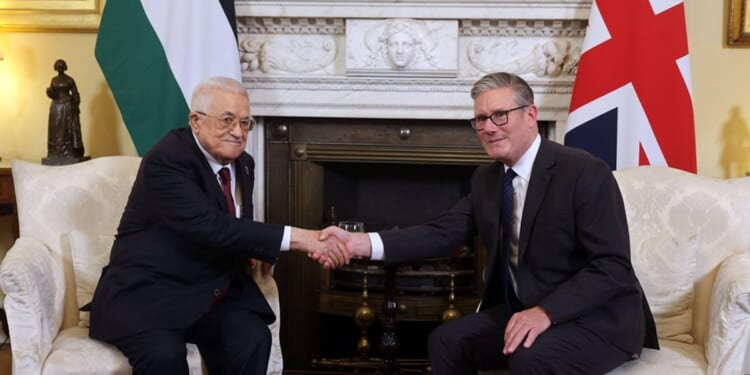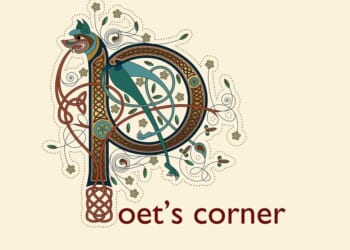FOR Palestinian Christians, the UK’s recognition of Palestinian statehood comes 108 years late. Early in the 20th century, Palestinian leaders believed, naïvely, that Palestinian Christians might persuade Britain to abandon plans to negate the country’s right to self-determination, as set out in the Balfour Declaration of 1917. Lord Balfour wrote to the Prime Minister, Lloyd George, in 1919, that “the weak point of our position, of course, is that in the case of Palestine we deliberately and rightly decline to accept the principle of self-determination.”
Palestinian Anglicans — among them prominent lawyers and intellectuals such as Fuad Saba, Mughannam Mughannam, and Izzat Tannous — made a powerful case for self-determination to the British authorities. The Church of England, however, largely failed to use its influence in support of self-determination. Archbishop Cosmo Lang adopted a Christian Zionist narrative over Palestine, which the Anglican Church in Palestine opposed ferociously. The Church of England used its influence to support a colonial-settler enterprise rather than to protect Palestinian Christians.
The dispute between Palestinian Christians and Western Christians has been political as well as theological. Cedar Duaybis, a Palestinian Anglican author, said that Palestinian Christians had gone through three Nakbas (catastrophes): geographic, demographic, and religious. The final one refers to Western Christians’ support for the Palestinian dispossession that led to the virtual extinction of Christianity from many parts of Palestine.
Christian Zionist groups and individuals, some of them part of the Church of England, have cheered Palestinian dispossession as a divine intervention. Western complicity with the Israeli occupation cannot be explained without the efforts of Christian Zionists to treat Israel as a “divinity”, rather than as any other state that must operate under international law.
Ecumenical relationships, meanwhile, can be used as tools to prevent criticism of Israel. The Chief Rabbi in the UK, Ephraim Mirvis, used his position to welcome to London this month the Israeli President, Yitzhak Herzog, whose statements denying the presence of innocent civilians in Gaza are mentioned in the International Court of Justice case on genocide. A few days later, the Chief Rabbi said that Britain’s recognising Palestine would amount to a “reward for terrorism”. What kind of ecumenical dialogue can take place with someone who warmly welcomes a president involved in genocide and denies the most basic rights to Palestinians, including the right to self-determination?
Yet, support among the British public for Palestinians’ right to self-determination is high: 44 per cent of respondents to a YouGov poll published last week expressed support for the recognition of statehood, while 18 per cent said that they did not (37 per cent remained unsure). London has become the epicentre of pro-Palestinian demonstrations in Europe, making many remember the prominence that British solidarity had in ending apartheid in South Africa.
IT IS yet to be seen, however, what part the Church of England will play in this process. Will the General Synod recognise the existence of genocide and act accordingly? Will it make sure that there will be no church investments in companies involved in war crimes and crimes against humanity? Will it condemn the weaponisation of the Bible to justify crimes such as ethnic cleansing and colonisation?
Israel is conducting several projects that threaten to eliminate what is left of the Palestinian Christian presence in occupied Palestine. These include the annexation of lands in western Bethlehem and the closure of Jerusalem, more movement restrictions to prevent Palestinian movement in the occupied West Bank, settlement expansion, settler terrorist attacks, and Israeli military raids. Furthermore, Israel demands taxes for church properties in Jerusalem and supports the work of settler groups in the Christian and Armenian quarters of the Old City, among others.
Systematic denial of rights and economic strangulation in the West Bank are leaving little hope for the future. Those who are struggling to stay in Palestine are failing to find the means to remain in their ancestral land. This is precisely the endgame of the Israeli government, which remains committed to the vision of ethnic cleansing and annexation: the Israeli Prime Minister, Benjamin Netanyahu, has said that Israel is “destroying more and more houses” in Gaza, and, accordingly, Palestinians there “have nowhere to return”. In fact, most Palestinian Christians live in exile, prevented from returning to their ancestral homeland by the Israeli occupation.
THE recognition of Palestine is an overdue step in the right direction, but it falls short of doing what is required to end the ongoing genocide and the Israeli occupation.
Britain and the rest of the international community should now act urgently to end the genocide, and enforce the recognition of Palestinian statehood with concrete policies to end the Israeli occupation by implementing international law and UN resolutions. This will also be a step towards compensating the Palestinian people for Britain’s significant part in the denial of the right to self-determination. This is a process that the Church of England will not be able to avoid if it truly cares about the future of Christianity in Palestine and the rest of the region.
Xavier Abu Eid is a political analyst and former adviser to the Palestinian negotiations team. An Anglican from the diocese of Jerusalem, he is pursuing a Ph.D. at Trinity College, Dublin, in Religion, Theology and Peace Studies.

















